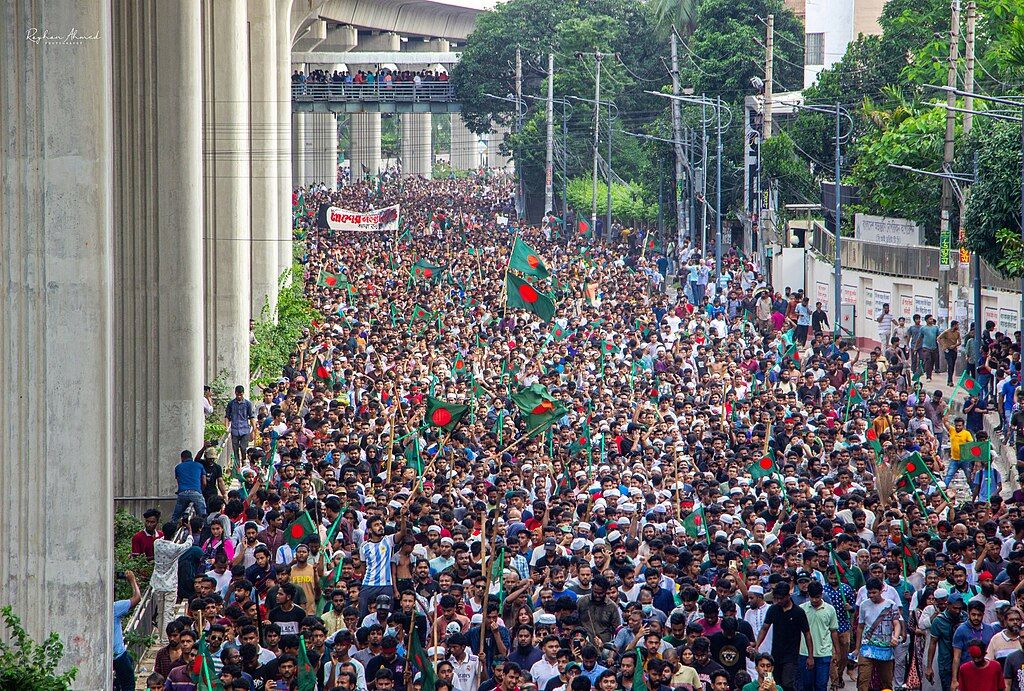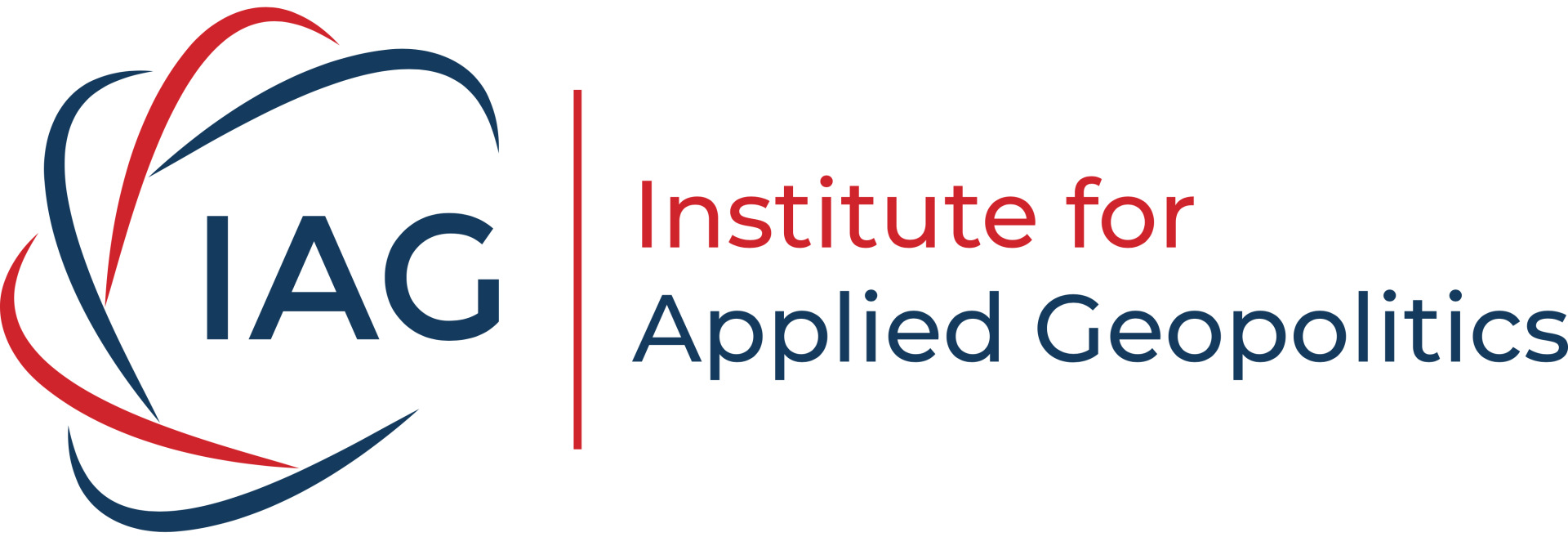Democratic Instability in Nepal, Malawi, and Colombia Fuels Global Security Risks

Photo credit: Rayhan9d, One Point Movement, Bangladesh
Intelligence Summary
Recent developments around the globe highlight a pattern of democratic erosion and instability across multiple regions. In South Asia, youth-led uprisings are reshaping political systems. In Africa, Malawi’s fragile democracy faces severe economic stress. In Latin America, U.S.-Colombia tensions threaten to undermine longstanding security cooperation. Together, these crises illustrate how domestic instability can spill across borders, affecting regional security, migration, and international policy coordination.
In September 2025, Nepal experienced a wave of violent protests that culminated in the resignation of Prime Minister KP Sharma Oli and the appointment of former Supreme Court Chief Justice Sushila Karki as interim prime minister. The unrest began after the government banned social media platforms, citing regulatory non-compliance, but quickly escalated into a broader anti-corruption and anti-nepotism movement led by Generation Z activists. Over three days of protests, more than 70 people were killed and over 1,000 injured, with many casualties caused by live ammunition fired by security forces. Protesters torched parliament, the Supreme Court, political residences, and media offices, while also storming Oli’s residence and ransacking it.
The violence was described by Nepal’s Health Ministry as the deadliest political unrest in decades, with hospitals in Kathmandu treating hundreds of gunshot victims and reporting multiple fatalities. Families of victims accused police of using live rounds rather than rubber bullets, and doctors confirmed treating patients with rifle wounds. The government’s attempt to ban social media backfired, as protesters used digital platforms to mobilize and share evidence of state violence. The interim government has scheduled new elections for March 2026 and pledged to investigate both the killings and the arson attacks.
The Nepalese protests were part of a broader regional trend of youth-led uprisings in South Asia. Similar movements had toppled governments in Sri Lanka in 2022 and Bangladesh in 2024, with demonstrators mobilizing against corruption, nepotism, and economic mismanagement. Analysts noted that these movements were interconnected, with activists in Nepal drawing inspiration from Sri Lanka’s “Aragalaya” and Bangladesh’s “July Revolution”.
In Africa, Malawi holds elections today, on September 16, 2025, amid severe economic turmoil. President Lazarus Chakwera, 70, seeks a second term against his main rival, 85-year-old former president Peter Mutharika, along with 15 additional candidates. The election follows years of economic decline, with inflation rising from approximately 8 percent in 2020 to approximately 27 percent in 2025, compounded by fuel shortages, food insecurity, and the devastation of Cyclone Freddy in 2023 and a drought in 2024. More than 7.2 million people have registered to vote.
The election is the first since the 2019 vote was annulled due to fraud, leading to a 2020 rerun that brought Chakwera to power. The new electoral law requires a candidate to secure more than 50 percent of the vote, making a runoff between Chakwera and Mutharika likely. Both candidates faced corruption allegations, and the campaign has been marked by politically motivated violence, including machete attacks on protesters demanding the resignation of the electoral commission’s top officials.
Meanwhile, U.S.-Colombia relations deteriorated after President Donald Trump’s administration decertified Colombia as an ally in efforts against drug trafficking for the first time in nearly 30 years, citing the nation’s alleged failure to uphold its drug control obligations. The U.S. State Department accused President Gustavo Petro’s government of allowing coca cultivation and cocaine production to reach historic levels, despite Colombia seizing record amounts of cocaine and dismantling thousands of laboratories. Trump issued a waiver to allow continued U.S.-Colombia cooperation but warned that progress must be demonstrated soon.
Petro rejected the U.S. claims, arguing that coca expansion had occurred under his predecessor Iván Duque and that policies promoted by Washington had failed. He accused the U.S. of shifting responsibility for its domestic drug demand onto Colombia. The decertification could lead to sanctions, including cuts to U.S. aid and opposition to international loans, though the White House retains discretion to waive such measures.
Why it Matters
The Nepalese uprising underscores the fragility of democratic institutions in South Asia and the growing role of digitally connected youth movements in reshaping political landscapes. The protests demonstrated how governments’ attempts to restrict digital freedoms can trigger broader political crises, especially in societies where corruption and economic inequality are entrenched. The resignation of KP Sharma Oli and the appointment of Sushila Karki as interim prime minister represent a temporary solution, but the deeper structural issues of corruption, nepotism, and economic stagnation remain unresolved. The scheduled March 2026 elections will be a critical test of whether Nepal can stabilize or whether unrest will persist.
The regional dimension is equally significant. The Nepalese protests were not isolated but part of a wave of youth-led movements across South Asia. The fact that activists in Nepal likely drew inspiration from Sri Lanka and Bangladesh suggests the emergence of a transnational protest playbook, facilitated by digital platforms. This raises the possibility of further uprisings in other South Asian states facing similar governance failures. It also enhances the opportunity for neighboring foreign powers, China and India, to influence Nepal during a period of uncertainty.
In Africa, Malawi’s elections highlight the vulnerability of democracies under economic stress. The combination of climate shocks, inflation, and corruption has eroded public trust in institutions. The likelihood of a runoff between Chakwera and Mutharika, both tainted by corruption allegations, suggests that the election may not resolve underlying grievances. If instability deepens, Malawi could face increased migration pressures and regional spillover effects, particularly given its reliance on agriculture and vulnerability to climate change.
The U.S.-Colombia decertification marks a turning point in hemispheric relations. For nearly three decades, Colombia has been a cornerstone of U.S. counternarcotics strategy in Latin America. By declaring Colombia a failed partner, Washington risks undermining cooperation at a time when cocaine production allegedly remains at record levels. Petro’s rejection of U.S. accusations reflects a broader shift in Latin America, where governments are increasingly challenging U.S.-led drug policies. If sanctions are imposed, Colombia’s ability to combat armed groups and drug cartels could weaken, creating security vacuums with regional implications.
The broader significance of these developments lies in their interconnectedness. Domestic instability in Nepal, Malawi, and Colombia is not confined within national borders. In South Asia, the continued pattern of unrest risks influencing neighboring nations. In Africa, Malawi’s crisis reflects the connection between natural disasters and economic hardship on political stability. In Latin America, U.S.-Colombia tensions could reshape regional security cooperation. Together, these cases illustrate the erosion of democratic governance in these regions, making local or regional unrest a matter of global concern.
Key Actors
- Nepal
- Malawi
- Colombia
- United States
- Sri Lanka
-Bangladesh

